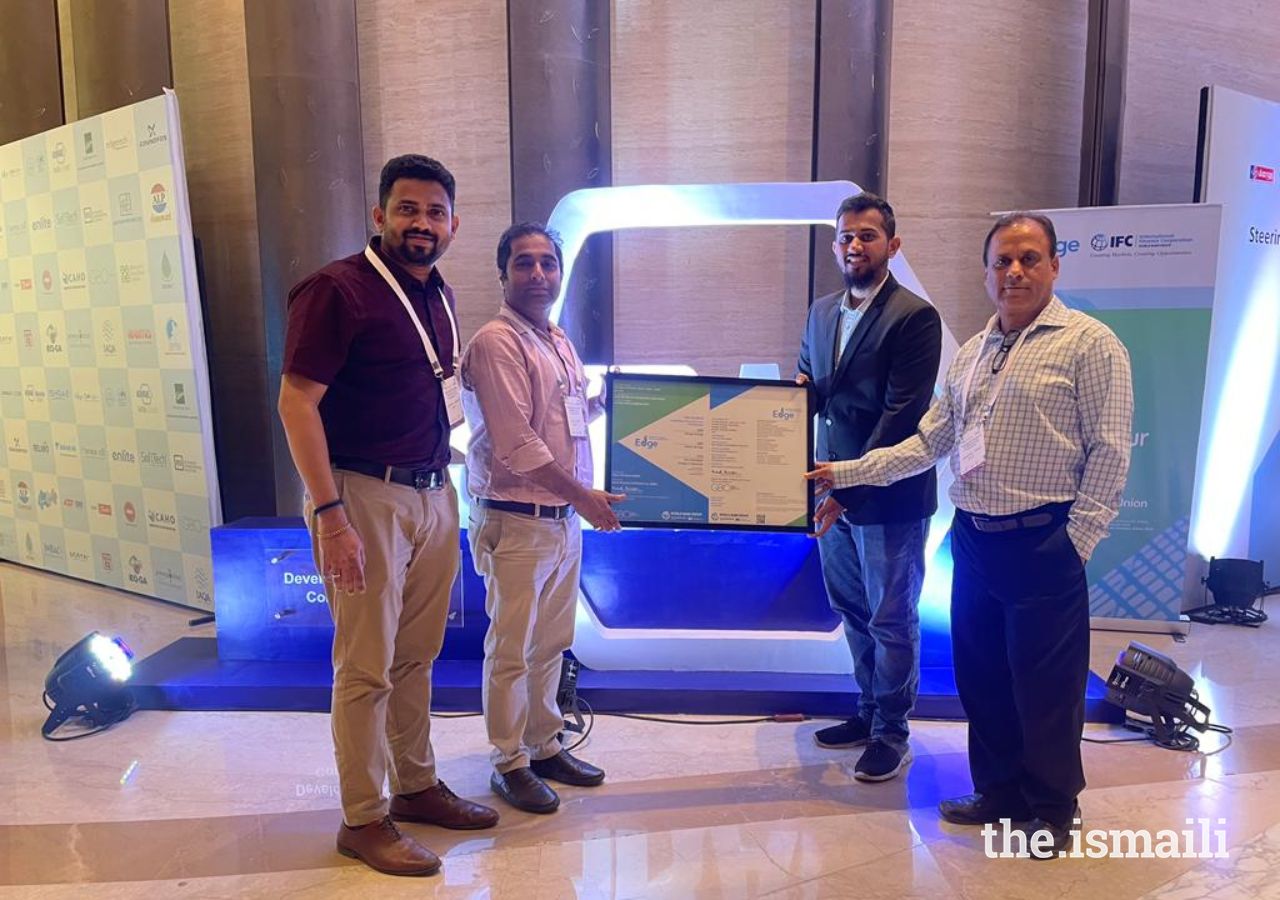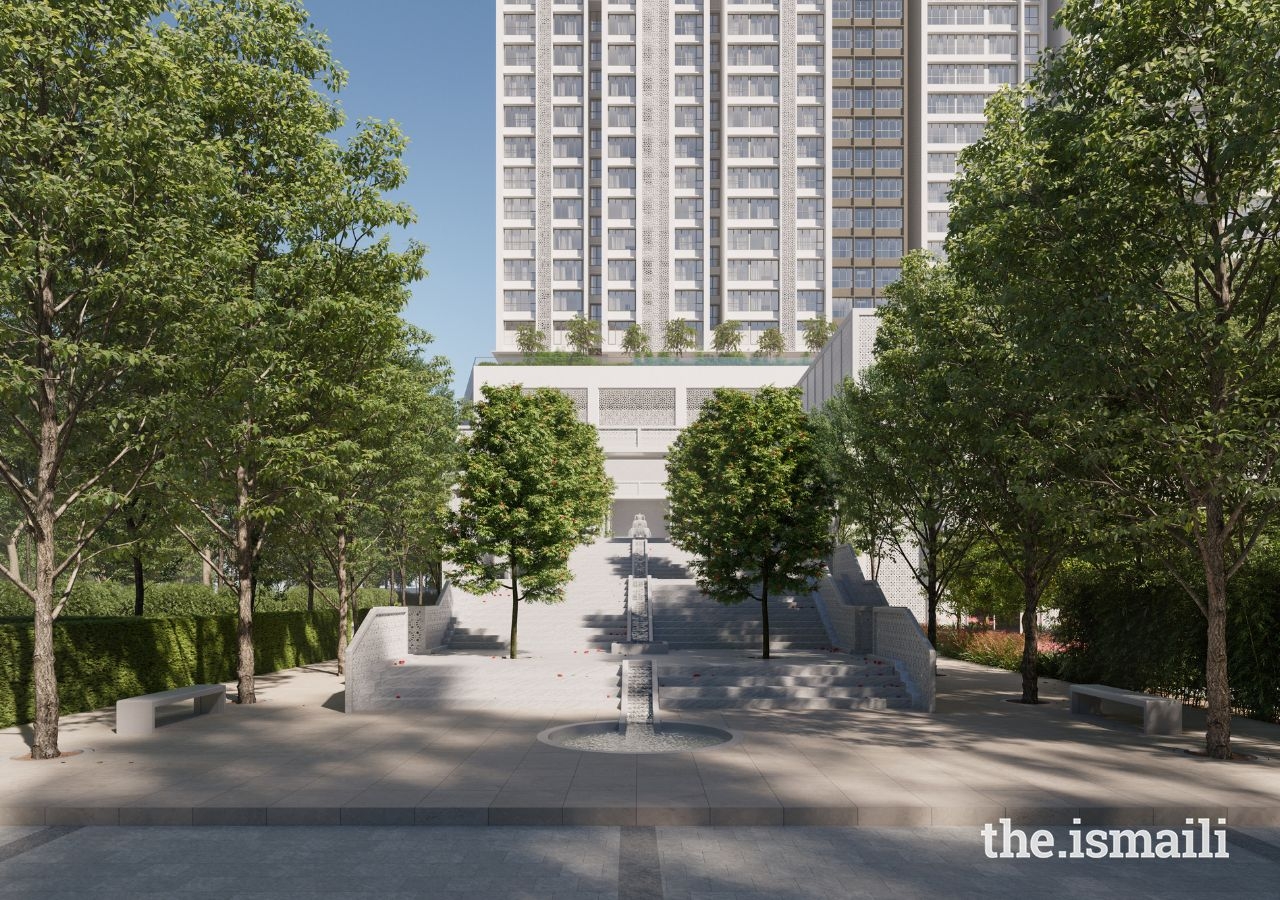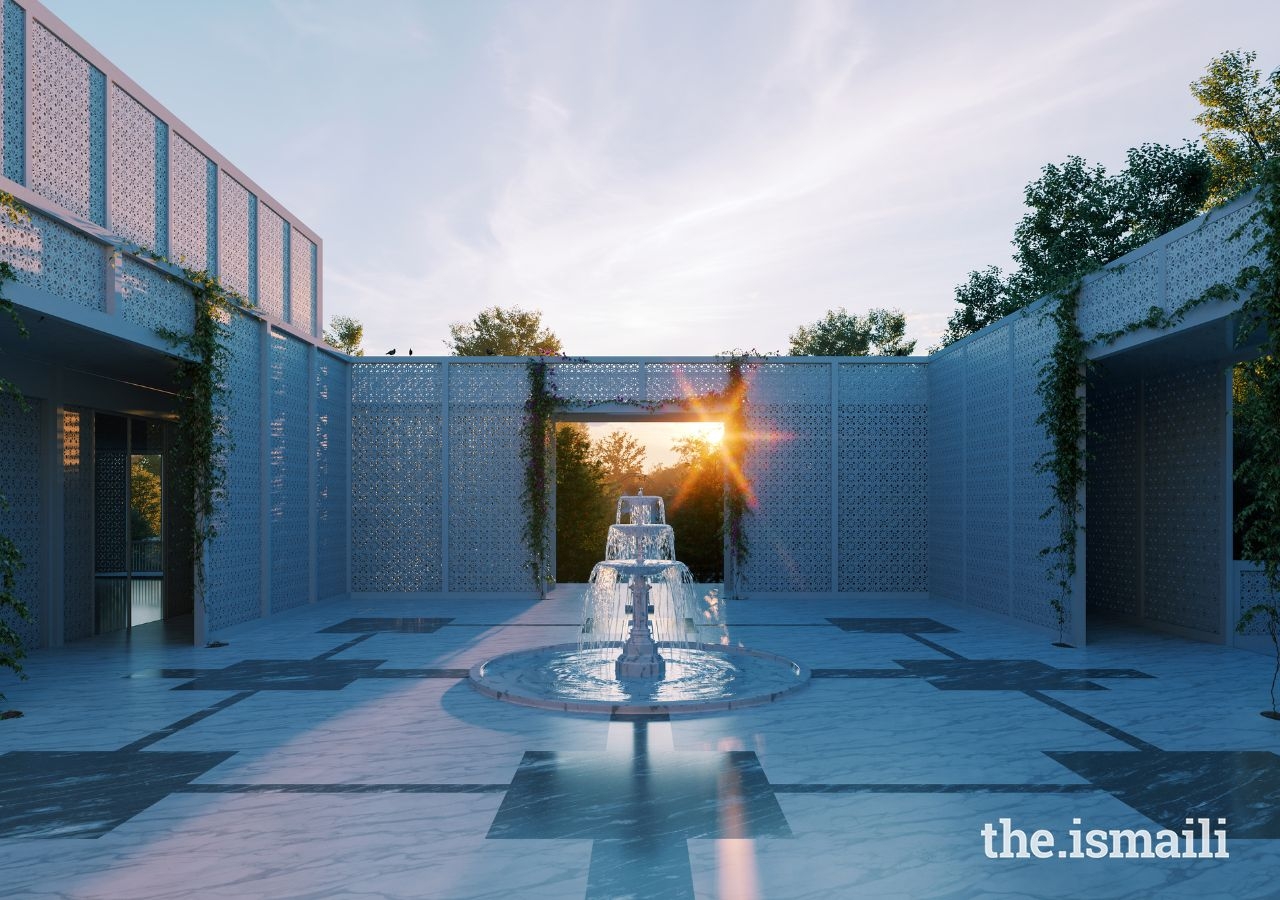The Aga Hall Estate, an upcoming high-rise residential development project in Mumbai was recently awarded the EDGE Advanced Certification, a globally-recognised benchmark for green buildings created by the World Bank’s International Finance Corporation (IFC). The certification is granted to building designs that project energy savings of up to 45 percent, water savings of up to 50 percent, and embodied energy savings (energy used in project creation) in the range of 21-32 percent, compared to conventional approaches. The certificate was presented at a ceremony held in Mumbai on 17 May.
aga-hall-estate-award

Vipin Mittal, the CEO of Projects at the Aga Khan Development Network in India said, “Timeless architecture focused around sustainability and depicting AKDN values — that’s what the Aga Hall Estate project stands for. And what a moment to get this acknowledged by an agency of international repute like IFC. It is indeed a proud moment for us and we thank IFC for bestowing us the Edge Advanced Certification.”
Ashish Merchant, President of the Ismaili Council for India, referred to the vital importance of environmental sensitivity in terms of designing the project.
“Prince Rahim has described how cities occupy only 3 percent of the Earth’s land but account for 80 percent of energy consumption and over 70 percent of greenhouse gas emissions. Hence, it is critical for those of us who develop urban infrastructure to be highly sensitive to our environment. This is the reason why the Edge certification and the felicitation by the World Bank's IFC are important. It underscores our commitment to resource-efficient and zero carbon buildings, not just in Aga Hall but everywhere,” he said.
The Aga Hall Estate, which has evolved over 150 years to include a community housing initiative and the Prince Aly Khan Hospital, once redeveloped, will offer over 387 apartments of an international standard in a residential complex incorporating energy-efficient and environmentally-sensitive features, a range of amenities for a healthy lifestyle, entertainment facilities, and covered parking, all in a thoughtfully landscaped garden setting.
The Aga Hall design applies AKDN’s Green Building Guidelines to incorporate eco-friendly building materials and increased water and energy efficiency while reducing waste and carbon emissions.
As a modern expression of urban community living, the estate aims to improve the quality of life of residents with community spaces and green spaces for social and cultural interactions as well as green and inclusive design. Reducing emissions from buildings is critical to achieving AKDN’s net-zero carbon by 2030 target.
The Aga Khan Agency for Habitat (AKAH) is partnering with IFC to accelerate wider adoption of green building practices.
“AKAH and the AKDN are proud to advance solutions for decarbonising the built environment in India and beyond,” said Onno Ruhl, General Manager of AKAH.
“Some estimates suggest that more than half of the India of 2040 is yet to be built,” he continued. “Better and greener homes and buildings are essential to how we combat climate change in ways that tangibly improve peoples’ lives today and protect our habitat for generations to come.”









